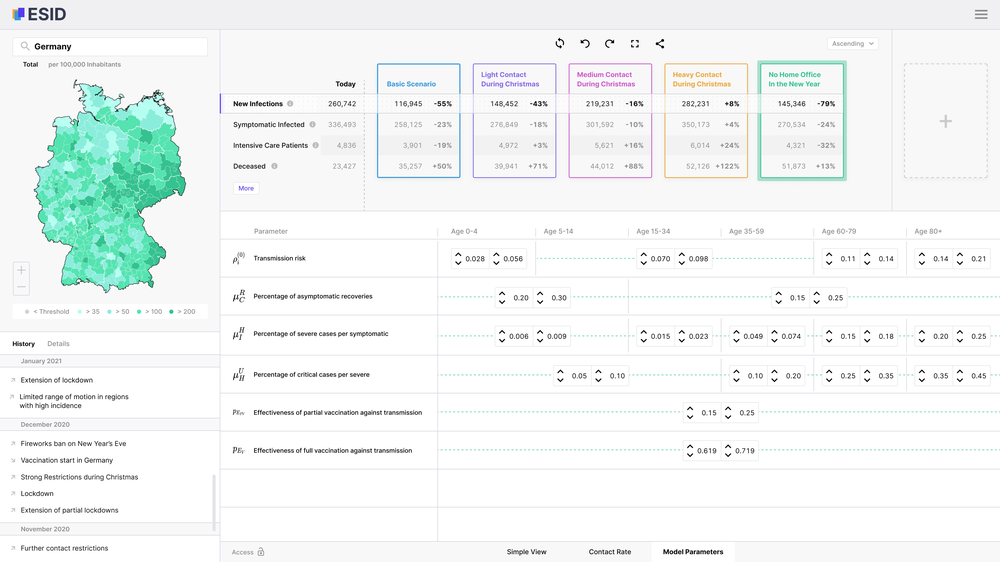LOKI Pandemics
In particular since the Coronavirus pandemic caused by SARS-CoV-1, plans and tools for the containment of epidemics are being developed intensively. However, an appropriate local control system for health authorities on a regional, targeted level is not available. During the SARS-CoV-2 pandemic, the need for such a system became increasingly obvious. The heterogeneity of different regions and localized outbreaks require a locally adapted monitoring and evaluation of infection dynamics.
In the LOKI project, the Institute for Software Technology develops a platform in cooperation with other partners to integrate data streams from various sources in a privacy preserving manner. For the analysis of the data, a variety of methods from mathematical-epidemiological modeling to machine learning is employed to enable an evaluation of different measures to local outbreaks applied on different scales.


These models will be integrated into automatized workflows and presented in an interactive web application with custom scenario simulations. The platform will be based on insights gained by retrospective and prospective evaluation of the COVID-19 pandemic, using SARS-CoV-2 as a blueprint for the prevention and containment of future respiratory virus epidemics. The platform will be transferred to the Academy for Public Health Services and optimized in pilot projects with selected local health authorities under real-world conditions.
Within the LOKI consortium, the Institute for Software Technology will mainly work on the development of new models and the efficient implementation in the open source software framework MEmilio, which can be used to compute infection dynamics. The software will be highly scalable for appropriate supercomputers. Furthermore, the Institute for Software Technology will build an intuitive graphical user interface to visualize the computed results. The focus of LOKI will be the close contact with the local health authorities and the accessibility of the implemented models via a powerful user interface.
Project runtime:
- 07/22 - 12/25
Scientific participants:
Publications on this project:
- W. Koslow, M. J. Kühn, S. Binder, M. Klitz, D. Abele, A. Basermann, M. Meyer-Hermann, Appropriate relaxation of non-pharmaceutical interventions minimizes the risk of a resurgence in SARS-CoV-2 infections in spite of the Delta variant (2022). PLoS Comput Biol 18(5): e1010054.
- P. Kaur Betz, J. Stoll , V. Grappendorf, J. Gilg, M. Zeumer , M. Klitz, L. Spataro, A. Klein, L. Rothenhäusler, H. Bohnacker, H. Krämer M. Meyer-Hermann, S. Somogyi, A. Gerndt and M. J. Kühn "ESID: Exploring the Design and Development of a Visual Analytics Tool for Epidemiological Emergencies.", IEEE VIS Workshop on Visualization for Pandemic and Emergency Responses (2023). (Preprint)
